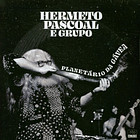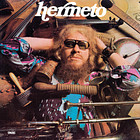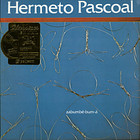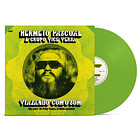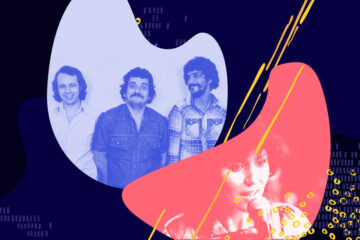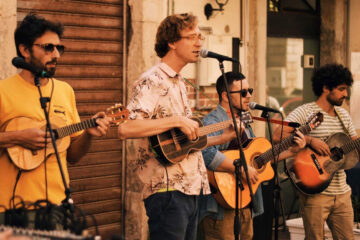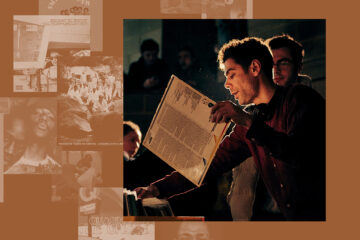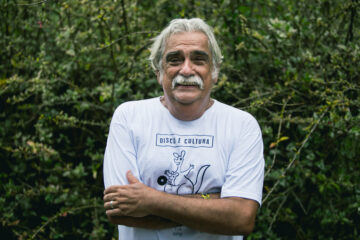His name is automatically associated with a second Brazilian musician, so I’ll name him straightaway: the Brazilian Hermeto Pascoal became known to a wider audience when he appeared as a guest musician on Miles Davis’ double album »Live-Evil« (one of the most beautiful palindromes ever created) in 1971. He played trumpet and electric piano in unison with Davis on »Little Church«, and sang in unison with him on »Nem um Talvez« and »Selim«.
Davis is also known to have said of Hermeto Pascoal that he is the most formidable musician in the world. No small compliment from a fellow musician who was notorious for condescendingly belittling even his most deserving contemporaries.
Related reviews
Finding and inventing sounds
In truth, though, Hermeto Pascoal doesn’t need the authority of a more famous musician to legitimise his music. Nevertheless, he does appear to be susceptible to pairing up with others for comparison purposes – or at least the people who write about him speak to that effect. To some he is the Brazilian Frank Zappa, to others Brazil’s answer to Sun Ra. All good company, but ultimately more an expression of the embarrassment of being afraid of not doing justice to the man and his distinctive qualities that characterise him.
At any rate, by the time Miles Davis asked him to join him, Pascoal had long since made a name for himself in Brazil. During the sixties he worked with Bossa Nova pioneers like Carlos Jobim and Sergio Mendes and founded his own groups in the form of Trio Sambrasa and Quarteto Novo, in both of which the percussionist Airto Moreira, a close associate, played.
Miles Davis is also known to have said of Hermeto Pascoal that he is the most formidable musician in the world. No small compliment from a fellow musician who was notorious for condescendingly belittling even his most deserving contemporaries.
Pascoal’s first solo album, self-confidently and simply called »Hermeto«, was released on June 22, 1970, on the exact day of his 34th birthday. That may sound late, but with Pascoal, who is still playing today, it makes sense to think in larger dimensions. »Nos Mundo dos Sons« (In the World of Sounds), for example, was the title of a double album he made in 2017, on which he dedicates each piece to a musician he considers important.
The title expresses his attitude well: while on the one hand Hermeto Pascoal explores the world of sounds – even at a young age he learned to play every instrument he could get his hands on – on the other hand his music itself is a world of sound encapsulated that encompasses a wide range of expressive possibilities.
Shaman in space
On »Hermeto«, this world was still largely determined by bossa nova and modern jazz, and yet the big band sounds hint at a free spirit that plays by its own rules. How these work can be heard beautifully on his album »Zabumbê-bum-á« from 1979. On it, samba, fusion, free jazz and Hermeto Pascoal’s very own quirkiness mix into something new that is infectious in an audacious and intrepid way. The first sound he greets you with on the album, for example, is a short pursing of his lips, which onomatopoeically is commonly written as »Brrr«. And why not?
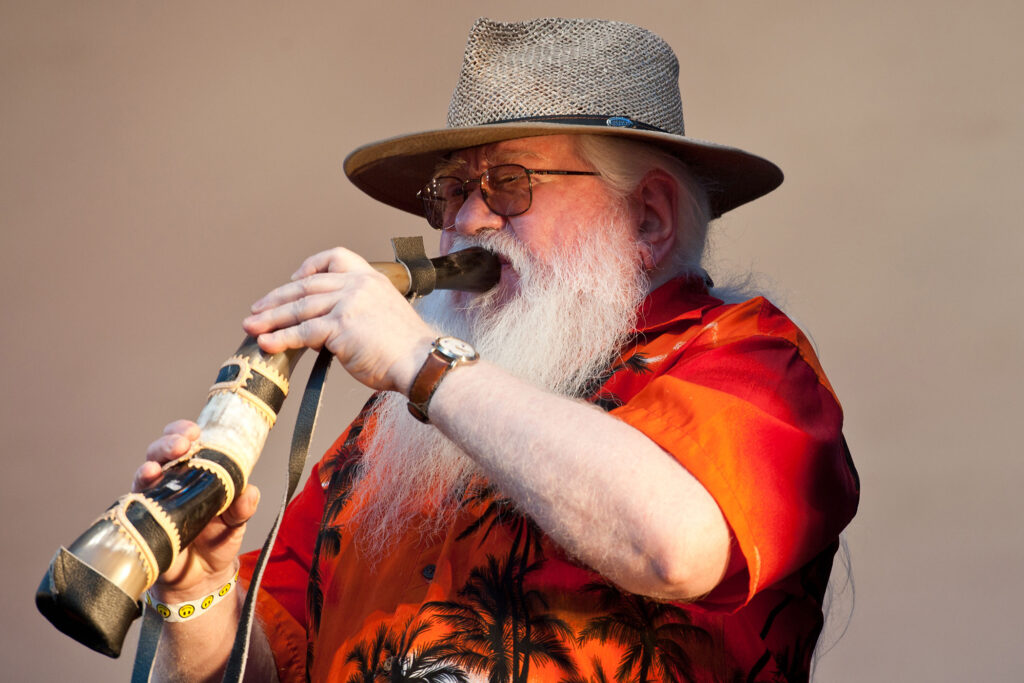
This playful approach to sound makes him a sought-after partner for open-minded musicians who like to think in similarly lush terms. The composer and saxophonist Daniel Glatzel, founder of the stylistically expansive Andromeda Mega Express Orchestra, invited Hermeto Pascoal to the »Cosmostage« in Berlin in 2015 for a joint concert in which the guest on the Yamaha DX7 synthesiser and various other instruments was not only placed centre stage, but also blended perfectly into the cosmological ensemble.
He remains an enigmatic figure to this day. Like his name, which brings to mind Hermes, the messenger of the gods, or »hermético«, which means »mysterious« in English. The ambassador of sounds, who is considered a shaman in Brazil, is always mysterious. Perhaps that is one of the reasons for the many comparisons which he is so frequently used for. And, of course, you can compare him to whoever you want – as long as it helps to get more people to listen to his music.


